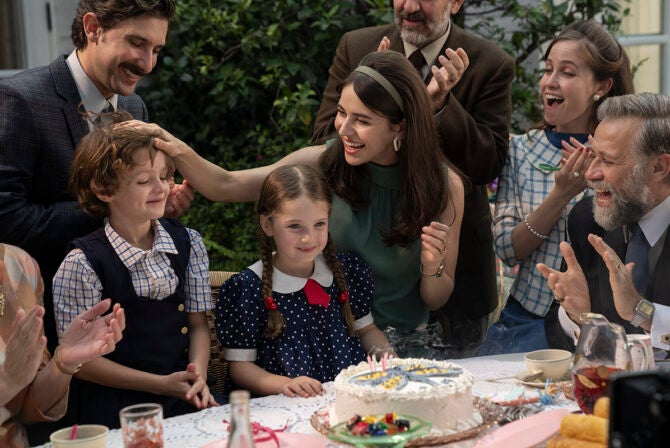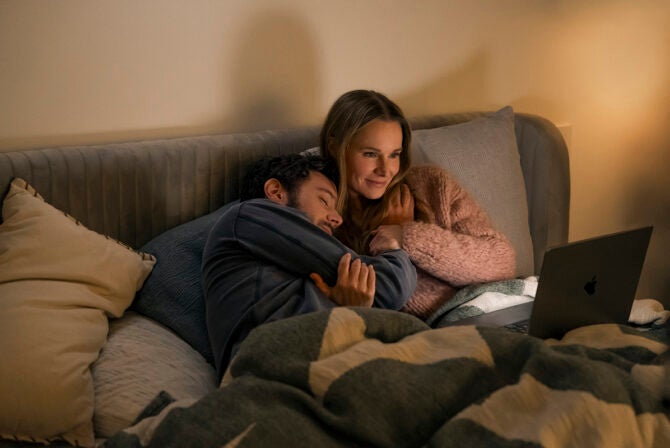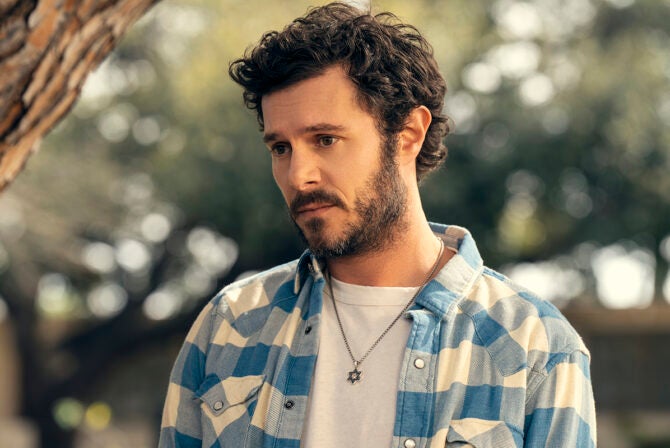I went to synagogue twice this week. Weird flex, I know.
Shemini Atzeret, the elusive holiday the Torah instructs us to observe with no apparent reason given, was lovely. We went in the morning. The synagogue, near our house, was quaint and traditional. We prayed for the hostages not yet released and we were grateful for the living who had come home and we had a little kiddush wine and then we went home and napped.
That night, we went to a fiery, feisty synagogue on the other side of town full of misfits and dreamers and rebels to celebrate Simchat Torah, the completion of reading the Torah and the beginning of reading it anew. A small group of us davened maariv — the evening prayers — and we murmured through the Shema and the Amidah as a ruckus began to build in the larger gathering room adjacent to our prayer circle. Drums and tambourines and singers assembled, and I took my place among them. And then, it began.
Seven circles (hakafot) of dancing with the Torah takes hours in this community, and every circle has a theme. I love singing with my friends on this holiday, as I have a front row seat to the beautiful chaos as bodies swirl and jump and wave their arms and hands. For a minute, it felt like everything was OK.
And then, flashes of emergencies forced their way into my head. What if?
What if a bomb goes off?
What if I can’t find my kid?
Where is my kid? He was dancing a second ago right there and now he is gone.
What if someone comes in with a gun?
What if we are trapped in this room?
What if they kill us?
What if?
And what was it like at the Nova Festival? They were dancing, then they were attacked. What is it like to be dancing and then have your life threatened? Will I always wonder this when I see people dancing and enjoying themselves? Are we all trapped in a perpetual reliving of that day?
This is what I was thinking as I sang my heart out. I wondered if anyone else was thinking about death and destruction as they sang and danced and laughed. No one would know.
We did not stay until midnight, or 1 a.m., which is likely when the festivities ended. A few hours was all I could take. I tried on the mask of joy and it felt a bit ill-fitting. I know we have so much to be joyful about, to be grateful for. I tried my best to feel all of it. I did try.
I woke up in the middle of the night before the sun rose on Simchat Torah, startled and mumbling. I found myself speaking the names of the returned hostages. “Evyatar,” I whispered; without knowing why. “Matan. Rom. Segev. Omri.” I whispered their names into the darkness. I don’t know them. I whispered as if I do. Something in my body has shifted; I’m going through the motions of life, but I’m working to piece together my broken soul — all of our broken souls — so I don’t need to be on autopilot forever.
October 7 two years ago happened on this very holiday. Simchat Torah. They attacked on Simchat Torah. Last year, I could not bear to dance and to sing. But this year, amidst the release of our living hostages and a ceasefire deal hovering on a figurative table somewhere in the Middle East, I suspended both disbelief and belief. This year, we had something to celebrate: hostages freed. Living hostages freed.
And yet, the sweetness tastes just a little bit bitter still. There is still so much unknown. Will this peace last? Will my children grow up to see Israel rebuilt? And what about Gaza? What are we entering into now? Now we start the Torah again. The calendar turns.
I know where I’ll be next year: Dancing. No matter what.








